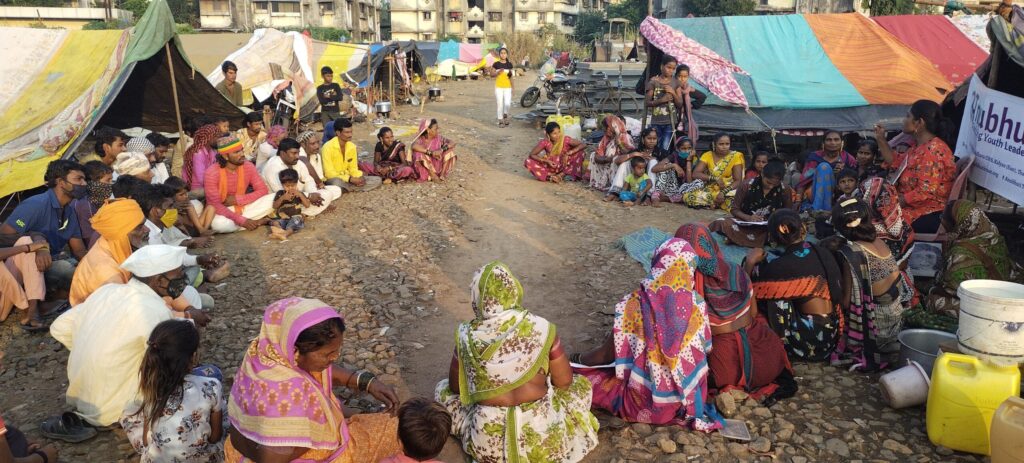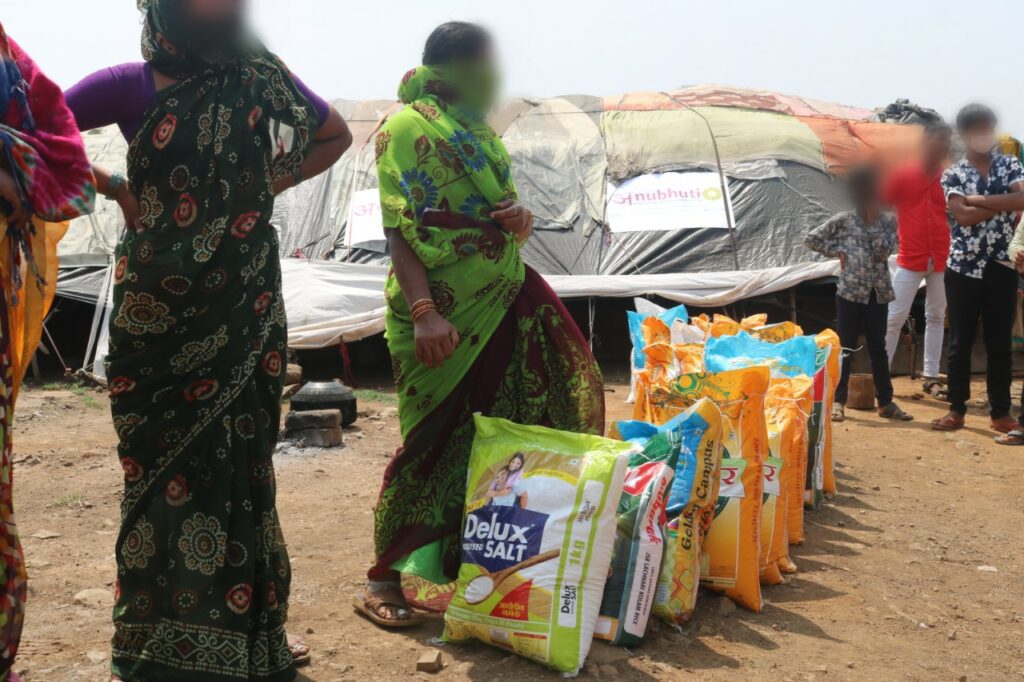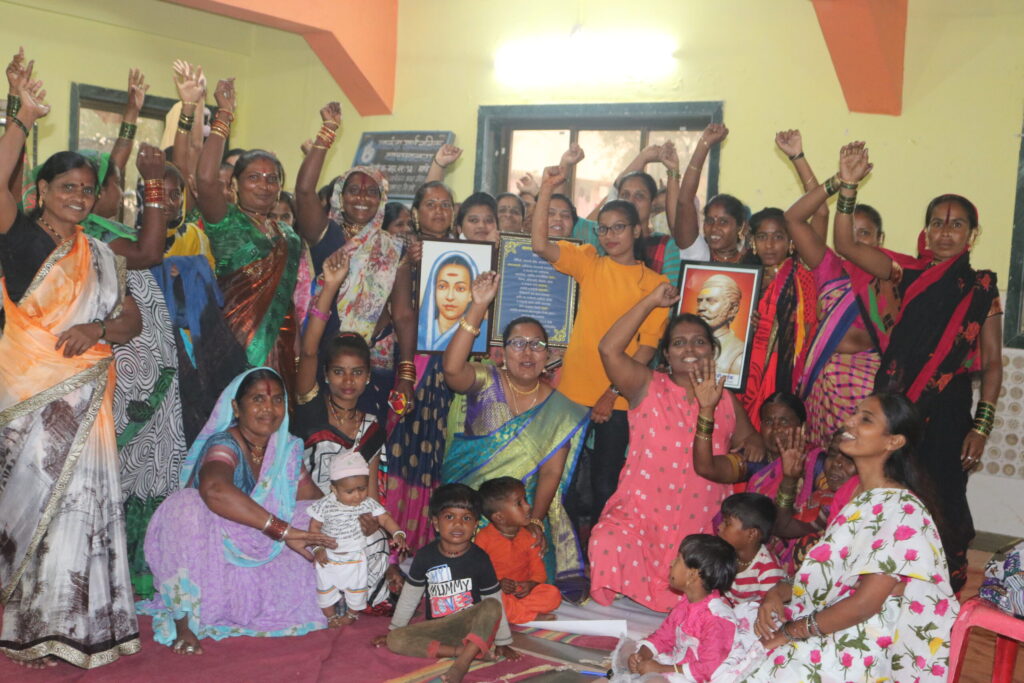Our Founder Director Deepa Pawar herself belongs to a NT-DNT community – the Ghisadi Gadiya Lohar tribe. Having grown up and lived for 30 years in a tent on outskirts of a Mumbai slum community, she has closely seen the severe struggles as a nomadic girl, young woman, young mother, mental health survivor, worker and so on. These have given her added layers of knowledge based on lived experiences, that are go beyond and are more severe than that of girls and women of other marginalized communities. Deepa is the first Ghisadi woman to travel outside India to accept an award from the University of California in 2018; this is just one indicator of the severity of marginalization of these communities.

Anubhuti was founded in 2016 and started working with Bahujan communities in rural, peri-urban and urban areas. Our priority has been to scale further into the grassroot – rather than scale-up only in numbers. This has ensured that every year, the organization has built up its capacity and started work with more and more intersectional groups. This organic process led us to start work with NT-DNT communities in 2020 – when the sudden COVID lockdown created a state of emergency for these criminalized, landless, homeless, invisibalized communities.

Our founder’s lived experiences and knowledge acted as a privilege during this time, since it was very difficult to start work with NT-DNTs during such an unprecedented period. Their realities are very different from the general poor, or even from other marginalized groups such as the Scheduled Castes and Scheduled Tribes. This meant that new strategies, working values, best practices had to be developed on the go, because existing practices could not always be replicated. This is because of the unique history of criminalization and persecution that NT-DNTs have suffered.
Read about starting COVID relief work with NT-DNTs.
The Nomadic & Denotified Tribes were falsely labelled as ‘criminal’ tribes by colonial British rulers by passing the Criminal Tribe Act in 1871. Their homes and lands were snatched away, many undignified practices such as having to mark their attendance at their local police station was forced upon them – robbing them of their sense of identity and dignity. For over 150 years these communities faced stigma and persecution which did not end even after Indian Independance. Though the Criminal Tribes Act was repealed in 1952, the communities continue to be seen and treated with suspicion by the administration as well as civil society. Today, they are said to form as much as 15% of India’s population, but there is no official census counting them. Even the local administration does not keep data about them; because they are periodically migrating, they are seen as temporary populations for whom no facilities are planned or built. They live precarious lives putting up their tents on risky, unclaimed lands, roadsides or under flyovers – where they continue to carry out their work in the open. Landlessness is at the root of their severe marginalization – due to which they are unable to make documents proving their existence, not able to avail of education, health, sanitation or most government benefits which they are actually the most in need of.
Read about historical mental injustice inflicted on NT-DNTs here, and the exclusionary impact of Urbanization.

In this context, Anubhuti converted the relationships built during COVID relief work, to start long-term work benefiting over 50000 persons directly and lakhs indirectly – in Kalyan, Vitthalwadi, Ambernath, and Badlapur in Thane District. These are with the objective of sparking intellectual revolution among the communities – to work on their deep-rooted vulnerabilities, historical injustices faced, loss of history and identity, and on the resulting current issues of education, health, sanitation, mental health, gender inequities, social insecurity, and civil rights.
The following programs are currently being carried out:
- Post COVID recovery relief – Nutrition, Media Aid, Direct Bank Transfers, Counselling
- Disaster Resilience and Leadership – Capacity Building of the community to face constant and upcoming disasters
- Reclaiming History – Understanding their true and powerful histories and identities before criminalization, Building sense of pride and dignified way of viewing their traditional occupations and cultures among youth.
- Career Leadership – Career guidance, education support, scholarships, admissions help
- Mental Health – Mental Health Literacy, Individual, family and community counselling
- Research and Advocacy – Community-Led Data Advocacy model developed and carried out in areas of Right to Sanitation and Sexual Reproductive Health Rights.
- Community Development – Community Centres providing weekly life skills sessions, remedial teaching, re-enrollment in school/college, in-community counselling, handling cases, etc.
